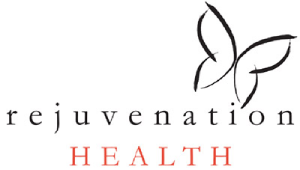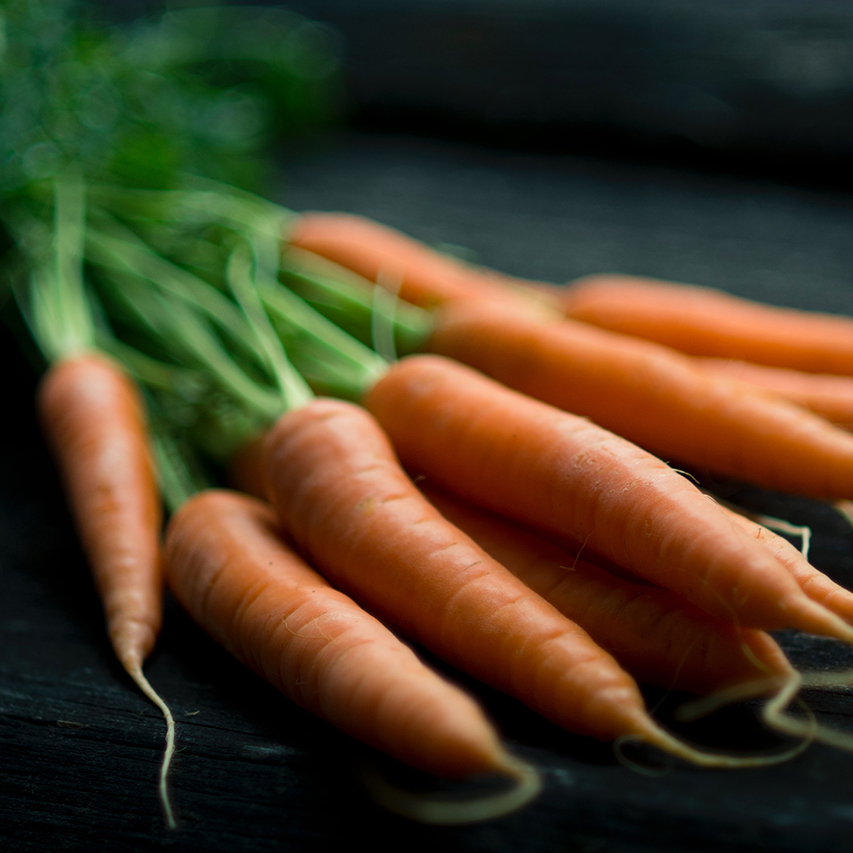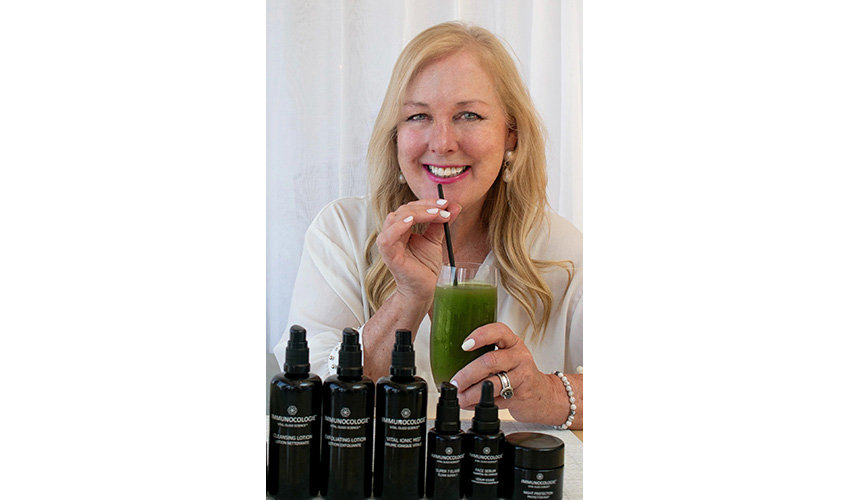Having bright, beautiful teeth takes more than basic dental hygiene. Good nutrition is also essential for your oral health. Your dietary habits significantly affect the condition of your mouth, from bolstering tooth enamel to cultivating a thriving oral microbiome.
Here are some of the best foods and drinks to promote healthy teeth.
Dairy Products
It’s true that milk builds strong bones — and strong teeth. That’s because dairy products have calcium. What food is a good source of calcium? Milk, cheese, and yogurt are packed with calcium, which strengthens tooth enamel by increasing its density.
Strong, durable enamel can better resist cavities and fractures caused by deterioration. Research has shown that consuming recommended amounts of milk and fermented dairy products on a regular basis can significantly reduce your risk of tooth decay (periodontitis). Plus, yogurt contains probiotics that are good for your gut.
The casein in cow’s milk can prevent dangerous bacteria like S. mutans from sticking to your teeth, as well as increasing saliva flow and balancing pH levels in your mouth. These effects can reduce your chance of developing cavities.
Apples
A delicious snack that’s also healthy for your gut and good for your teeth? Yes, please!
Although they have some natural sugar, apples are loaded with nutrients and antioxidants like polyphenols that keep free radicals in your mouth in check and reduce dental plaque buildup.
The fiber in apples can help remove supra-gingival plaque from your teeth — especially when you also practice routine oral hygiene measures. They’re also high in water content, hydrating you and boosting saliva production.
Just make sure you eat whole apples instead of drinking apple juice. These two products are not the same. The high amount of sugar and malic acid in apple juice can cause dental erosion and decalcification.
Celery
Celery is also full of fibers that clean your teeth and wipe away plaque. In fact, a raw celery stalk is practically a cluster of natural dental floss strings that naturally clean your teeth. Just take a bite and see how these threads can loosen food particles that are stuck between your teeth. Celery also promotes saliva flow as you chew it.
These crunchy green stalks also have antibacterial effects, which may diffuse S. mutans and help prevent tooth decay.
Carrots
Carrots pair well with celery as nutritious, low-fat snacks any time of day. They’re fibrous and thus good at cleaning your teeth and gums and contain less sugar than fibrous fruits do. Carrots also contain vitamin A, which is good for your bones, and vitamin C, which is beneficial for gum health.
Raw carrots are a great option for people who crave a crunch. Eating uncooked carrots also means you get all the health benefits they have to offer.
One study found that people who were missing teeth consumed fewer carrots and other foods rich in dietary fiber. This correlation shows how important eating vegetables like carrots are in a mouth-healthy diet.
Leafy Greens
Consuming fresh kale, spinach, chard, and collard greens delivers numerous vitamins and minerals with hardly any downsides. Just make sure you don’t drench your leafy green salad in fatty or high-sugar dressings.
Green leafy vegetables are rich in B vitamins like folic acid that reduces gum inflammation and the risk of periodontal disease like gingivitis and halitosis. Plus, the oxalic acid from green leafy vegetables like spinach can help decrease enamel discoloration over time.
Whole Grains, Nuts & Seeds
Other foods that are good for your teeth are nuts and seeds. Some of the best for your dental health include:
- Poppy seeds
- Sunflower seeds
- Sesame seeds
- Chia seeds
- Almonds
- Cashews
They’re high in valuable nutrients like protein, folic acid, and vitamin D.
Chewing on nuts and seeds can also scrape lingering plaque from your teeth. Just make sure you brush and floss afterward, since the husks can get stuck in your gum line and cause inflammation.
Eggs
Eggs are a great breakfast option for teeth — as long as you prepare them well.
This high-protein food is already a common, affordable breakfast staple, so adding more eggs to your diet shouldn’t be difficult. Just make sure you don’t saturate them with fatty butter and sodium when you cook them, and avoid frying them.
The healthiest ways to eat eggs is by boiling — hard or soft — or poaching them. Ensuring you don’t overcook them means they retain the most nutrients, like vitamins D, K, and phosphorus — which are crucial for dental health.
Fish
How often do you eat fish? If you like seafood and care about your oral health, you should try to eat it multiple times per week.
Fatty fish like salmon, trout, mackerel, and albacore tuna are rich in omega-3s. Such fatty acids may lead to a lower risk of gum disease because of their anti-inflammatory effects. Also, these lean proteins contain vitamin D, which can help your teeth absorb calcium.
Garlic
Eating garlic gives you much stronger breath… and stronger teeth! That’s because this popular herb contains allicin, which has biological defensive properties that can improve your oral health. For example, a 2011 study found that the antimicrobial benefits of garlic can help control and mitigate oral diseases like periodontitis. Thus, garlic is a good food to eat if you have a cavity.
Sugar-Free Gum & Candy
It seems counterintuitive that a list of foods that are good for your teeth would include gum and candy, but there are some dental benefits to certain treats.
Healthy chewing gums and candies are sweetened with xylitol and erythritol. These alcohol sugars actually can help prevent tooth decay by inhibiting the growth of bacteria on the enamel surface and reducing plaque buildup. Any foods or drinks that contain xylitol and erythritol have healthy substitutes for sugar in them.
Chewing gum also promotes saliva production, which flushes away food particles that are stuck to your teeth. Just make sure the product you use contains no other added sugar, as that will do more harm to your teeth than good.
Green Tea
There are numerous dental wellness benefits to drinking green tea.
The Camellia sinensis-derived drink contains polyphenols that reduce gum inflammation, mitigates the development of periodontitis and dental caries, and fight off bad breath. Green tea can even remineralize enamel!
Green teas contain more antioxidants and catechins than black tea does, making matcha a healthier drink for your mouth.
Water
Obviously, hydration is crucial for your overall health. But did you know that drinking water promotes healthy gums and teeth?
Water rinses away food particles and residues that may ty to cling to your enamel. Drinking water after a cup of coffee or glass of wine can help prevent staining. It also keeps the acids produced by oral bacteria in check.
We’ve discussed the importance of saliva throughout this list. Your body produces between .5 and 1.5 liters of saliva every day. 99% of that saliva is water. Hydrating is essential for this process and preventing dry mouth.
Supplements for Dental Health
Your body doesn’t always ingest enough of the vitamins and minerals it needs — even when you eat good, healthy foods. Supplements can help ensure you ingest the recommended daily values instead of solely relying on your diet.
These supplements can benefit your dental health:
- Vitamin C: Repairs teeth, nurtures dentin, and reinforces connective tissue in the gums
- Vitamin D: Boosts mineral density in the enamel while reducing inflammation and mitigating gum disease
- Vitamin K: Repairs damaged teeth by regulating bone remodeling
- Folic acid: Reduces gum inflammation and helps cells defend against bacteria
- Calcium: Builds strong teeth by fortifies the enamel
- Phosphorus: Improves enamel remineralization by aiding calcium absorption
- Vitamin A: Feeds keratin in the enamel and promotes saliva production
- Grape seed extract: Has been proven to promote the remineralization of teeth with caries lesions.
All of these vitamins and are found in foods that are good for your teeth, but your body can benefit from extra intake — especially if you have destructive dental habits like grinding your teeth.
Foods to Avoid for Healthy Teeth
What foods should you avoid if you want healthy teeth? Foods that are not good for your teeth include:
- Simple carbohydrates, like cookies, cake, and some cereals
- Sticky, sugary foods like candy, pies, and chewable sweets
- Fried foods or starches like potato chips that are fatty and stick to your teeth
- Sugary drinks like soda pop, lemonade, and fruit juice
- Acidic foods and drinks like coffee, tomatoes, vinegar, and wine
- Citrus fruits like lemons, limes, and grapefruits
- Dried fruits that have lost their nutrients and are mostly concentrated sugar
- Popcorn, as the kernel husks can damage your gums and potentially cause abscesses
Some of these items are safe for your mouth if consumed in moderation because they provide some nutritional value. However, they can still weaken the enamel and increase the risk of tooth decay. So, brush and floss your teeth immediately afterward to remove any lingering particles.
If your teeth are already tarnished from eating these foods or neglecting proper dental care, there is still time to reverse surface stains. You can easily whiten your teeth at home following a variety of methods.
Read Next – How Your Oral Health Impacts Your Heart Health
Key Takeaways
What foods help repair teeth? Dairy products like milk and yogurt that contain minerals like calcium and phosphate can rebuild tooth enamel over time. Gradual remineralization can help prevent tooth decay.
What food makes your teeth stronger? In addition to calcium-rich dairy products, these foods can help strengthen your teeth naturally: fish, eggs, and whole foods like veggies and apples. These foods are good for your teeth because they are high in fiber, vitamins, folic acid, and fatty acids, which your enamel and gums need.
Healthy eating can improve your teeth and mouth when complemented with daily dental care habits like brushing with a toothbrush and toothpaste, flossing, and using alcohol-free mouthwash.
Our biological dentistry practice in New York City recognizes the importance that a proper diet has on your mouth and the rest of your body’s functions. That’s why the mouth-body connection is so significant.
Our oral care experts at Rejuvenation Dentistry want you to have a healthy mouth, and a sparkling smile. Contact us to discuss how changing your diet can result in stronger, improved teeth.




